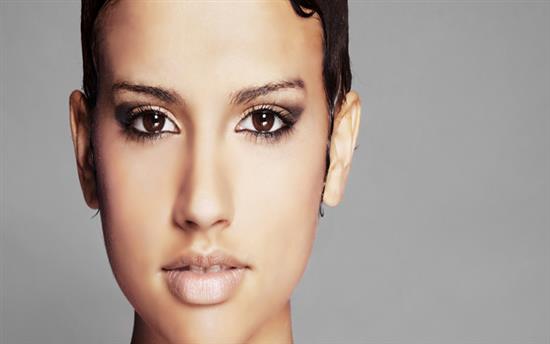
Rhinoplasty is one of the most intricate cosmetic surgery procedures requiring a delicate manipulation of tissues, technical skill and an appreciation of facial harmony in order to produce natural results.With ethnic rhinoplasty particularly, it is vitally important that you find a surgeon that you can trust. Mr. Jag Chana is a highly qualified plastic surgeon and one of the best rhinoplasty surgeons in the UK with a huge experience in ethnic rhinoplasty. A carefully considered and individualised rhinoplasty treatment plan is critical to achieving a natural result during ethnic rhinoplasty.
The appreciation of facial proportions is particularly important when operating on individuals from different ethnic backgrounds. The underlying anatomy of the nose may be different in different ethnicities but also the method of surgery will need to take into account the underlying differences facial anatomy. This requires a level of technical skill but also experience in operating on many patients from different ethnic backgrounds. The common populations requesting rhinoplasty include Jewish individuals, Asians and Mediterranean patients. All of these populations present unique differences in their underlying anatomy which are important to recognise prior to planning a rhinoplasty and maintaining the racial identity of the patient.
How is ethic rhinoplasty performed?
Most ethnic rhinoplasty surgery is performed as open rhinoplasty, which means that an incision will be made on the column of skin in between the nostrils (the columella). This approach allows greater control and precision to alter the shape of the cartilages of the nose. Often the tip of the nose has a different structure in certain ethnic types and this can result in the need for grafts to be used and these grafts can be more precisely positioned using an open approach. Other smaller changes may be required such as narrowing the flare of the nostrils. This is quite common in Afro-Caribbean patients whose nasal base is wide in which case the nostrils are reduced but this will need a scar at the base of the nostrils. Despite these very small openings in the skin, the nose heals with almost imperceptible scars.
What is the recovery?
After your rhinoplasty surgery, there will be detailed aftercare to follow – this is more or less the same for most patients, and does not differ based on the ethnicity of the patient. You will be required to wear a cast after your surgery which will remain in place for approximately a week– Mr. Chana will outline exactly how long this must be worn for. You should avoid bending or stooping for a couple of days, as this might cause extra swelling or bleeding, and you should sleep upright for the first few days. You must not exercise for 6 weeks after the surgery.
Swelling after surgery always takes some time to subside. Once the cast is removed the nose will be a new shape but it can take a few weeks for most of the swelling to settle. However, it can often take 6 months to 9 months to see the final result. Often the tip refinements can take this much time or even longer to completely settle.
The more complex the rhinoplasty the more likely is the possibility of ‘touch-ups’ or rhinoplasty revisions; this is due to the fact that when surgery requires more extensive changes to the bones and cartilages there is more tissue to heal long term. Occasionally this can result in minor imperfections which are outside the control of surgery and do not even become visible until many months after the procedure. If any refinements are required Mr Chana will offer this free of charge.
The rhinoplasty consultation
The most important part of any rhinoplasty procedure and especially ethnic rhinoplasty is the consultation. A meeting with Mr. Chana prior to surgery will allow him to assess your individual situation and to discuss a bespoke plan for your rhinoplasty.
Of course, there may be some limitations on attainable results, depending on factors like your skin thickness, skin texture and existing nose shape. Mr Chana will very carefully discuss the likely result that can be achieved and any limitations. This usually takes more than one consultation. Mr Chana does not charge for second consultations since the most important factor is that you are fully informed about the procedure and that you feel comfortable with the proposed surgical plan. To book a consultation with Mr. Chana, please call or email his practice today.
